How many times have you walked down a dark alley? You know, an act that violates what everyone says is “common sense”, the elixir that will keep you safe when you travel. I walk down them all the time. Often, cool things are at the end of that alley.
Read any article about how to stay safe when traveling (and there are plenty, because traveling is always oh so very dangerous), and somewhere, an expert will be quoted telling us the dictum “use common sense”, as if that is definable. They then cite examples of using common sense, most suggestions being the same across articles: Don’t walk down dark alleys, don’t flash money or jewelry, avoid crowds and public spaces, be aware of your surroundings, let trusted people know where you are. The articles vary, but damn near everyone mentions those dark alleys, because we all know what happens there.
This Huffpo article, “Surefire Ways to Get Mugged on Vacation“, includes the heading “Hang out in Dark Alleys” as a good way to get mugged, which they claim is also shorthand for doing dumb stuff, such as “talking loudly about the expensive jewelry you’re wearing”, an act I’m pretty sure you don’t do. They also warn you not to “flash a wad of cash”. This article also warns against just that, as well as the flashy jewelry. These are not experts if those are the examples they cite, because I don’t think travelers do these things much.
Quora, that arbiter of all knowledge, has a question: How can a person avoid being the victim of a mugging?, in which they suggest “…ultimately most muggings happen when the person is alone in a dark alley or poorly lit street with no onlookers.” I don’t know where the cliché of the dark alley started, but I imagine it’s the movies, and now it will never go away.

I truly wonder if young muggers, just getting starting in their mugging career, scope out dark alleys unclaimed by other muggers for their workplace. And of course, union rules stipulate that muggers only work after dark. If I was a mugger, I would work the morning shift. Much less competition.
Common sense may tell you not to walk down a dark alley, but more likely it’s a reinforced fear, connected with the more general and primal sense of being afraid of the dark and with our sense of danger in general. Author Kate Harding investigates some of this fear in her book “Asking For It: The Alarming Rise of Rape Culture – And What We Can Do About It“. While she focuses specifically on rape, the same lessons apply to crimes in a broader sense—that walking down a dark alley at 2:00 a.m. is not “asking for it”. That applies to crime in general. So much of us tend to think that crime victims are foolish and bring it on themselves, and could have avoided it. With common sense.
This remarkably short column about “Travel Safety and Health” asks, “Use common sense. Would you go down that dark alley at home? Then don’t do it while traveling, either.” This thought exercise fails. When I’m at home, I know the dark alleys, and I know if they’re safe. This column says, “As a final tip, use common sense. You wouldn’t go walking alone in a dark alley by night wherever in the world, then don’t do it.” And this column here, the very first sentence is ” First and foremost, use your common sense.” And then they mention the dark alley a few sentences later, again summoning up our darkest fears.

(image from Unsplash, luis-villasmil-S2qA7JhjI6Y)
What is common sense?
Telling people to “use common sense” may be harmless, but will not keep them safe. So many articles about traveling safely just make people more afraid, or limits their behavior. They can make people afraid to be alone when traveling, to go to local places, to get away from the crowds, or use public transportation, or even go out after dark.
Here’s what the experts forget about common sense: If you must raise the subject, it’s not so very common. When people are traveling, they are in unfamiliar situations and things work differently, so seemingly common things are not common.
The other factor is perhaps the experts truly are the experts, and most travelers are not. Sure, some people go abroad several times a year, but most people don’t. The average American visiting Europe has probably only been there a few times, and thus the natives have instincts they don’t have. So they look stupid in the Paris café, because they don’t have the common sense of the natives and just don’t know what to do. I regularly observe travelers looking dumb, like not knowing how to open a door, just because the door is a bit different from the ones they’re used to. I do similar acts myself all the time, such as not knowing how to get a train ticket in a new city.
One time in Sircusa, Sicily, I found the best sandwich maker in the world. My goal was merely to procure a sandwich from him, but damn if I knew the system. So I looked stupid—I hung around the counter hoping the situation would resolve itself. It didn’t, so I went inside and asked, in my bad Italian. Upon receiving the answer, half-understood, I went to the counter again looked dumb for a while longer until someone helped me. Geez, I don’t have enough common sense to buy a bloody sandwich, no not when I don’t know the system.
Christopher Elliot, a well-known travel advocate and normally a champion of the common traveler, wrote a column years ago about the death of common sense, citing people who don’t know how to use an airport kiosk or want their travel insurance to pay for something that’s not covered. “Experts say common sense is on the verge of extinction among travelers,” he writes. J’accuse. I see his (limited) points, but damn, common sense tells me that if I have insurance and something goes wrong, that’s what insurance is for, and the fine print is written to benefit the insurance company, not me. Likewise, perhaps he can use his own common sense to remember that unlike him, the teeming masses aren’t super familiar with an airport kiosk, whose screens probably aren’t so user-friendly, so of course there’s a learning curve. (I’ve seen this complaint often.)

(image from freeimages.com, thaumaturgic-1199278)
Another article, “11 Common-Sense Rules To Follow On Your Next Vacation” includes tips like “Remember to shower” and to avoid wearing socks with sandals. Another one smartly entitled “Common Sense Travel Tips” advises you to not lose your passport. Remember that, grasshopper, and you shall be wise. They also state, “If your plans are to travel solo, especially to a foreign country, consider taking a group tour instead.” I don’t have proper adjectives to describe my reactions to these remarks.
Let’s stop trying to define common sense. For most writers, it’s demeaning shorthand for the knowledge they happen to have, and to their amazement, others don’t have. Or it’s their strange idea that the rest of us need reminders not to lose our passport. Or to shower.
Here are the common sense rules I happily and habitually break when I travel:
- I travel alone, and I don’t check in with friends every evening nor give someone else my detailed plans.
- I walk around the streets at night, because there are so many things happening in the night.
- If I see a crowd, I often go towards it. I want to know what is so good over there.
- I use local public transportation. You think I can afford a taxi everywhere?
- I leave valuable things in my hotel room. I’m not taking my large camera everywhere I go. If there’s a safe, I’ll use it of course but most of the time there is not.
- I talk to strangers. I just don’t give them my number or anything. Sometimes I must break off the convo and just walk away, and sometimes it’s boring, but much more often it’s awfully interesting.
- I ask people about religion and politics. That’s how you find out what’s going on. I will not restrict my conversation to the weather.
I admit these activities open me to a certain degree of risk. Or, I could just stay home, where it’s safe.

Are dark alleys so dangerous?
I don’t have many personal photos of dark alleys, so I looked for some stock photos to illustrate this post. There is no shortage of “dark alley” photos out there, more proof that the concept is a cliché. Moreover, many of the images are of a female looking scared while a shadowy male figure is in the background, or just a single male hanging out there, usually wearing a hoodie, the mark of the beast.
Does darkness mean crime? A study in 2015, cited here, concluded that we can “dim our streetlights and save energy without increasing crime”, though of course it noted that there are counter-examples, but the overall research trend is anything but conclusive that darkness = crime.
I don’t want to encourage you to walk down dark alleys, but sometimes there are cool things at the end of that alley. Check this review for a restaurant in Vancouver with the conclusion “Sometimes it’s a good idea to walk down a dark alley!”
I like back alleys (not always dark) so much I posted a photo essay, here it is, of the back alleys of Macau, and the many pleasures contained therein. Also, in old Venetian cities like Piran, Slovenia (another photo essay right here), there is little besides alleyways to walk through.
Is travel itself so dangerous?
Travel can open people to danger when they come from a safer place, but the main danger comes from destinations with both a confluence of tourists and an underclass, and the main danger is pickpockets or possibly bag snatchers, not mugging.
I’ve written before about how useless it is to ask “Is it safe?” about a particular destination. Humans are hardwired to be more scared than we should be, and that includes the cognitive construction of home = safe and away-from-home = danger. Try to get over this. Unknown destinations just feel more dangerous, that’s how our mind overly keeps us safe, combined with us not knowing as much what to do when something happens, relative to knowing more what to do when at home. We feel less in control when away, more worried.

(Image: Twenty20 stock photo 41d88d87-0fe7-4dce-a669-ef316433e1bc)
I write all this realizing I’m in a particular demographic. I’m male, I’m tall, I don’t look like any athlete, but not an easy mark either. I’ve done lots of martial arts, and while I certainly don’t think I can take on anyone, I walk like I’m no pushover. Easy for me to talk, no?
However, several investigations, such as this one, reveal one little-known fact: Muggers actually prefer men, not women. Men are less likely to yell for help or make a scene, and they are less likely to seek police help afterwards or even tell anyone. They’ll probably just go home and hate themselves for being cowards and not fighting back, even though that’s absolutely the right thing to do. Muggers normally don’t want to hurt you; they just want your stuff and to get away fast. Hurting you means more police involvement and a more serious charge if they’re caught.
Men never carry mace, pepper spray, or any type of defense that women sometimes have. Us men, for all our bravado, are generally not very tough. Most correctly realize we’re not very good fighters and we have little chance against a person with, say, a knife. Most men have not faced a personal combat situation recently, and are not used to it. Just the threat of violence is usually enough.

I have few tips here on how to stay safe when you travel that you have not read before. The biggest threat while traveling is not muggings in dark alleys, but pickpockets in public places, and there you just need to keep your valuables where you can see them. I wear my wallet in my front pocket, at home and away, since I can’t see how guys can sit on a wallet all day anyway. My bag isn’t that easy to open, and I keep it in sight. I use something to hide my valuables, not really a moneybelt, but a pouch like this that loops through your belt and hangs inside your trousers out of sight. I get teased for it sometimes, and it’s not for everyone, but it’s the best peace of mind ever. My passport and bank cards and most of my cash stays there. A pickpocket will never get that, and even a mugger would have to search me.
Know what pickpockets are after, which is cash first, your wallet next, perhaps your passport, and any electric device like your phone, especially your iPhone.
My main tip is that articles entitled “How to stay safe while traveling” are all going to contain the same advice, so you only need to read one or two, and you’ll have the common sense down pat. They will tell you to be aware, be alert, tell someone where you’re going, and don’t walk down dark alleys, you fool. They may try to talk you out of doing common, average acts like taking a bus or seeking out a local restaurant in a new neighborhood or even going out in the evening. If they advise you to carry traveler’s cheques, check the date on the article.
Much of the safety advice reminds me of the old joke about the guy who heard that most accidents happen in the home, so he moved. Anyone writing a column about travel safety will go too far with the advice, because they need more than a paragraph of copy. Don’t let these people scare you from going out at night, using public transportation, or venturing away from the tourist zones.
Instead of common sense, use critical thinking skills. Check the crime rates and types for your destination before you go, and recognize that a few published incidents don’t necessarily indicate a pattern. Distinguish fact-based conclusions versus opinion, and don’t succumb to the logical fallacy of proof by example. Yes, your aunt’s best friend’s niece heard of something mugged in the city to which you’re traveling, but a few bad stories do not make a place dangerous.
Do some googling on the place and see if many people mention pickpockets, muggings, or other crime, and exactly where. See if people mention specific scams or tricks, like the time I read about the shoe shine scam of Istanbul before I visited there, and then watched as people tried it on me and thus failed. Three separate times. Before visiting Bangkok, I read about the people there who will lie and tell me the Grand Palace is closed, and when I arrived, they tried it on me. Had I not done advance research, I might have fallen for these.
Get specific tactics to deter crime instead of generalities. Perhaps you need to put a thick rubber band around your wallet to make it harder to pull from your pocket, thus deterring quick-working pickpockets. Perhaps you need a stronger bag that’s harder to cut. Perhaps you need a smaller bag, easier to track. Develop solutions and strategies.
Traveling brings us into unfamiliar situations. Sure, take care, use your common sensibilities, but don’t let fears stop you from traveling.


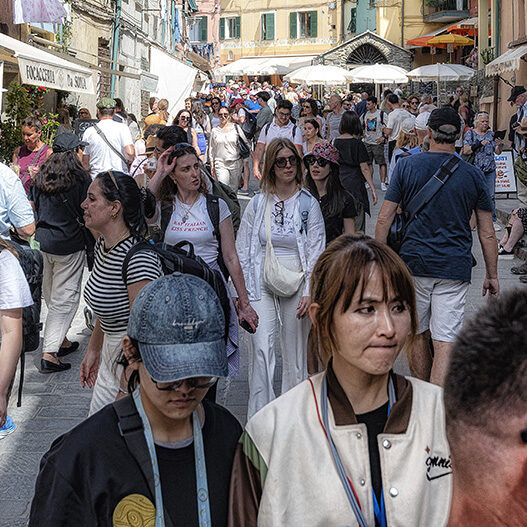
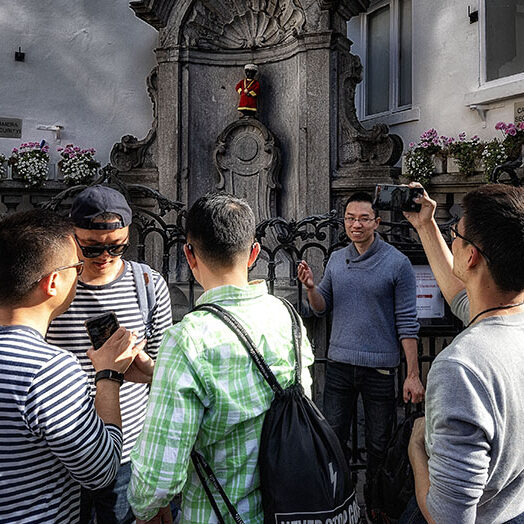
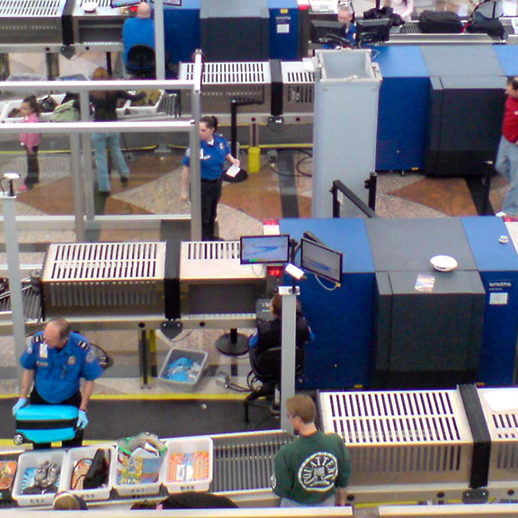
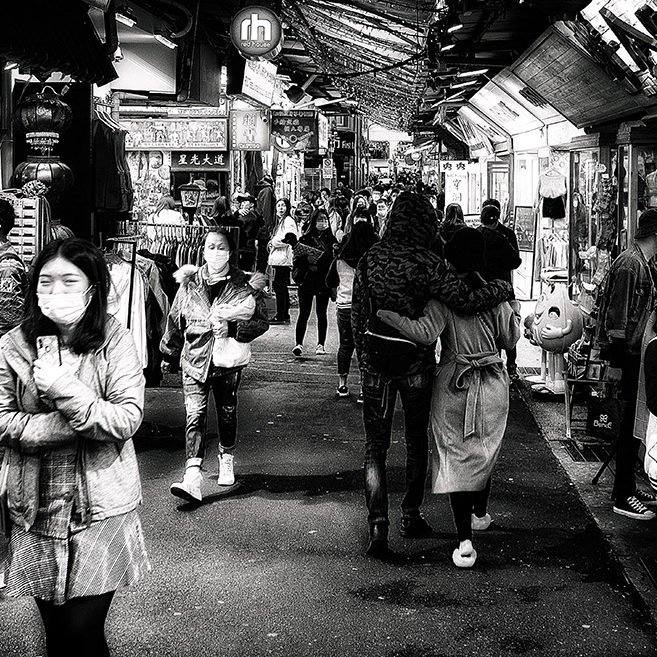
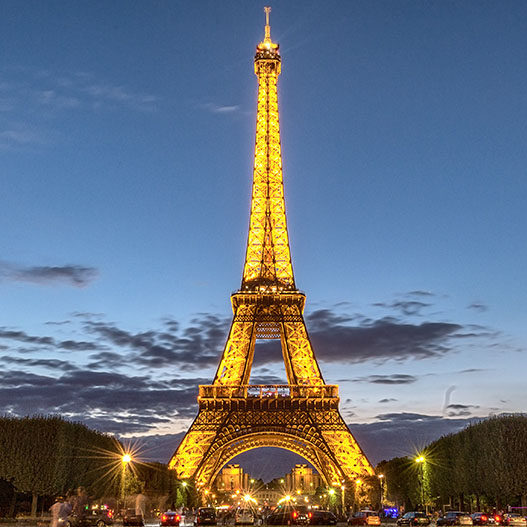
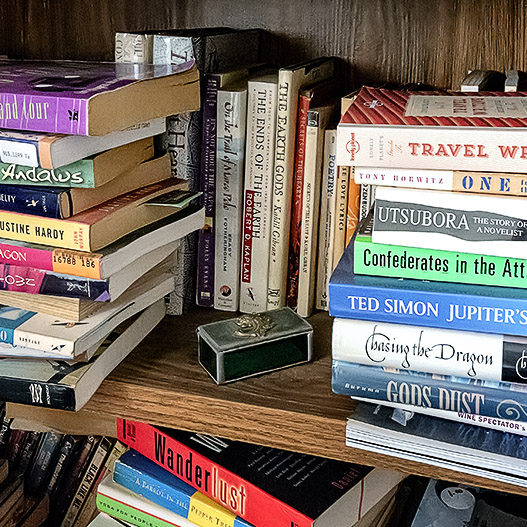





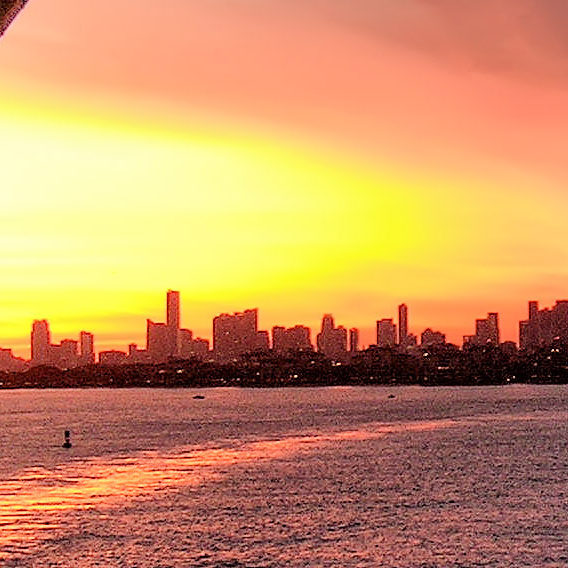
What an interesting read! I completely agree that we should put the fears aside and still go and travel as travelling just broadens one’s horizons so much more!
Great advice for researching the crime rate in a particular area – that is what I would normally do when booking a hotel – checking the neighbourhood and the crime rate there. I actually prefer choosing the more local districts to stay at as they are actually less likely to have high pickpocketing rates as there are fewer tourists in this area.
Agree with you about the local districts, but wherever we stay, we still will visit the Tourist Zone at least a few times. The Istanbul and Bangkok scams I cited weren’t random examples–they are local, common tricks that I probably would have fallen for had I not done advance research. Find the local scams in the area and beware.
I must admit that wherever the fear comes from, hanging out in dark alleys makes me uncomfortable. I am not afraid of taking risk. But I believe in managing risk. So it an alley seemed interesting, I would be sure to check it out in daylight with all of my senses alert. To me managing risk smartly is common sense. Even if people might question my common sense after I jumped out of 150 perfectly good planes! I looked at the list of things you do that may break common sense and must admit I do many of those too. But I have also had to quickly make an exit decision when I needed to. And your last point about deterring thieves is something we always do. The reward of travel makes taking calculated risks part of the journey.
“quickly make an exit decision” …yes, that’s something we all must do sometimes; I totally agree. I don’t hang out in dark alleys much either, but I just wanted to point out that example is a small one that few need. Just about everyone will look down that dark-ish alley and make their own choice anyway–we don’t need experts to write articles about it.
I would say that I follow my intuition, not common sense. I am a female who often travels alone and haven’t yet had any problems. But I certainly am going to not make stupid moves, as one can travel safely.
Well said! And good tip about reading up on the local scams. I read all of them before going to Beijing and they all got tried on me! My favorite was the “students ” who tell you they want to practice English over tea and then stick you with the bill. I tols them “Oh I read about thia scam. Thanks anyway!” 😊
Yes, I read about that same tea scam!
I agree! So much “common sense” travel advice just perpetuates unfounded fears. As a young woman, I once had to walk home alone in the early morning hours in London because my train didn’t get in until 1 a.m. I remember being absolutely terrified not because I was unsafe (I’d lived in the neighborhood for six months at that point and it was safe!) but because I’d be lead to believe this was the worst possible thing I could be doing! Much better to teach people how to assess safety rather than just have them simply write off certain activities completely as “unsafe.”
This is an interesting topic I’ve thought a lot about, especially after being mugged in Santo Domingo in 2018. Having lived for a year and a half in Brazil with no major safety issues from 2020 to 2021, I do feel like people’s fear is often misplaced when it comes to travel. I feel like the tactics I use to stay safe and minimize risk are common sense now that I’ve traveled a lot, but they probably weren’t before that. Pickpocketing and blatant, out-in-the-open theft are the most prevalent concern even in crowded, well-lit areas as you mention. For me another one is to balance exploring on foot and knowing where you’re going. If you look like you’re wandering and confused, scammers will notice and approach.
Kevin here brings up an important point — common sense tactics “are common sense now that I’ve traveled a lot”. Yeah, before you travel a lot, they are not common sense. I feel much the same way, in that one person’s common is not another’s common.
This was a fun and interesting read for someone who travels frequently that always has parents and grandparents asking if a destination is “safe.” I agree that “common sense” while traveling only becomes common sense after you’ve experienced it and practiced it several times, but there’s no way to completely know how to do everything right in a new place. As long as I am always holding my purse and have it over my shoulder I feel safe 99.9% of the time while traveling, dark alleys or no dark alleys.
yes, my family also always asks if it’s safe. I live in Washington DC, USA, and before a trip to Paris five years ago, my mother asked, “Are you sure that’s safe?” I never know how to answer such people.
What a great, well researched and thought provoking article. I backpacker solo around South East Asia for 6 months in my early 20s and often explored alone at night. I have to admit, the more darker, quieter and isolated places I used to avoid, but I’d avoid them at home too.